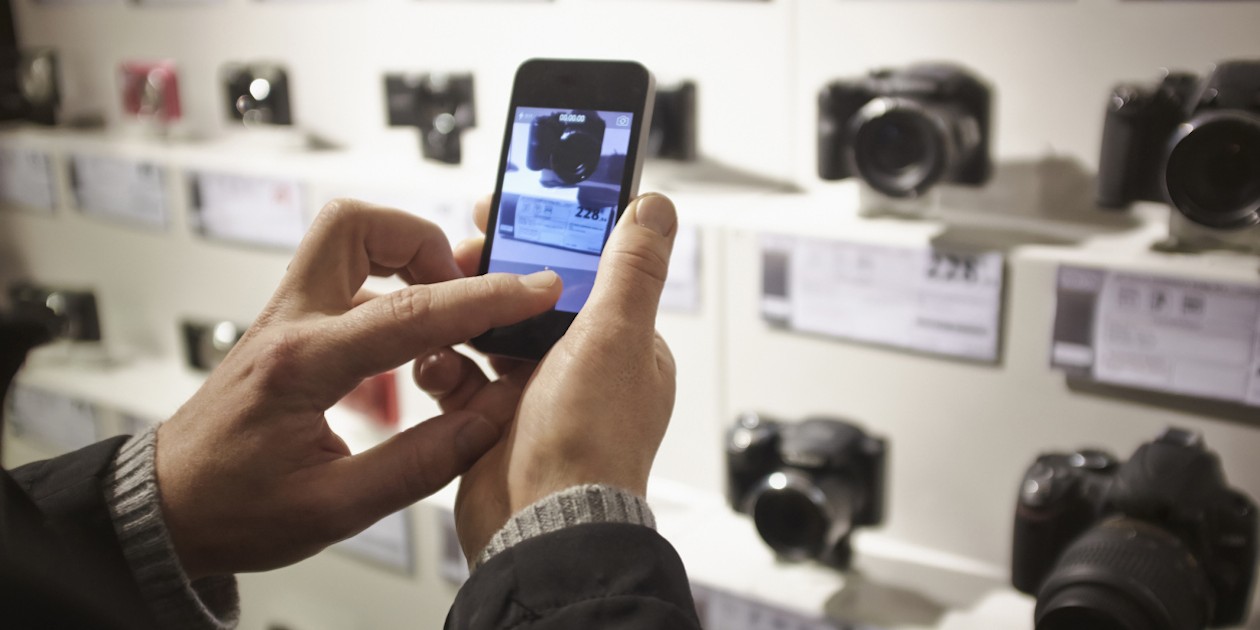One of the biggest challenges of in-store mobile marketing is getting shoppers to download retail apps. Want to start sending customers push notifications from your fancy new iBeacons? Then you need to get people using your app.
Douglas Lusted, founder of Waterloo-based tech startup Linkett, knows how big a barrier that can be. He said when his company tested in-store activations where shoppers were asked to download an app to participate, 52% of them said no thanks.
“Although mobile apps are great, if I go to 15 retailers a month I don’t want to download 15 individual apps,” he said. “It’s not a good use of my time and it fills up my phone.”
So Linkett has developed an in-store mobile marketing solution that works without an app. It uses wifi “shelftalkers,” 4.5-inch screens with motion sensors that activate when a customer approaches. The screen offers the customer personalized content — like a coupon, video or social post — and tells them to sign-on to its wifi to receive it. If the customer opts to sign in, their browser opens automatically and receives the content — no download required.
The company works directly with brands to increase sales on specific products. Lusted said they’ve been successful with a range of “impulse-buy” products in the $10-$100 price range, and that they’ve measured sales lift between 13% and 32%.
“It doesn’t really matter the category, it’s more about who’s using the product,” he said. “For example, electronics is a great one for us, because people are already tech-savvy, they know how to use wifi and they’re interested in smartphones.”
Lusted co-founded Linkett in 2012, while he was an undergrad student at Waterloo University, with initial funding from Waterloo and University of Toronto. Its devices have been installed in a handful of stores around the Greater Toronto Area, including select Staples, Harvey’s and Oxford Properties locations, as well as in parts of the Southern U.S.
One of its biggest clients is a Texas spice manufacturer, which uses Linkett devices to hand out recipes to shoppers. “That actually influenced people to buy spices more than a 10% off coupon, because spices aren’t very expensive to begin with,” he said. “There’s a lot of different ways to do it — incentives are one way, but we’ve seen that educating the consumer about the product and its value can be another good way.”
He said Linkett has the capability to send content without the user signing on, but without active consent it would seem too much like SMS or email spam. Here the idea is to get the shopper’s attention and engage them, just like an app-based push notification, but with a much lower commitment required for the shopper.











